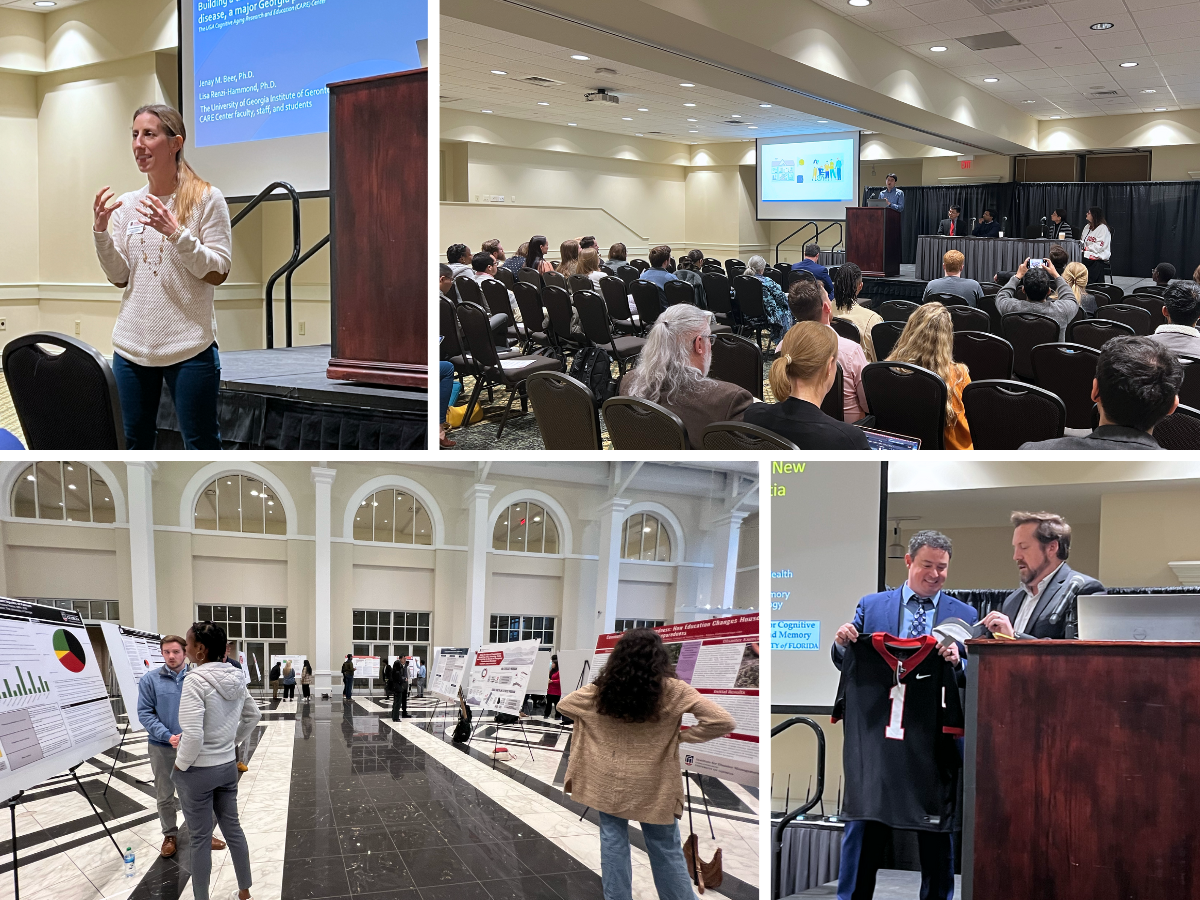Over 100 faculty, staff and students from the UGA College of Public Health gathered on Friday, February 9, for the College’s inaugural Research Day. The event brought together researchers from Public Health’s four departments and three research institutes to share findings and innovations and to inspire collaboration for current and future projects.
The day included symposium presentations and 3-minute lightning talks given by departmental faculty members and trainees. Institutes also provided overviews of the research projects going on within their respective units.
See full presentation abstracts
While the topics that UGA Public Health researchers are addressing ranged from mental health and substance abuse to wastewater epidemiology to dementia, one obvious throughline was the embrace of team science
“One of the major motivators behind Research Day was to create more cross-departmental collaborations within the college and foster a team science approach to research. To that end, I think our first Research Day was a fantastic start, and we hope to follow that up with a pilot grant program to initiate new collaborations that ultimately result in new federally funded grants,” said Chas Easley, associate dean for research and associate professor of environmental health science.
A focus on improving the health of people living in rural communities and members of minoritized or marginalized groups was evident. Some of the notable projects faculty shared include:
- Epidemiology & biostatistics assistant professor Danielle Lambert’s K01-award funded research quantifying and describing the experiences and impacts of cyber dating abuse in queer youth living in the Deep South.
- Health promotion & behavior clinical assistant professor Chrissy Proctor’s research investigating mental health and substance abuse among rural farmers.
- A pilot program using health technologies and real-time data collection to assess how the stress of everyday racial discrimination impacts the health of pregnant Black women, led by health promotion & behavior associate professor Tamora Callands.
- Health policy and management associate professor Adam Chen shared results from a study on COVID-19 health outcomes and policies in health districts led by medical professionals.
- Environmental health science assistant professor Wentao Li’s Genome-wide Analysis of the Formation and Repair of DNA Damage Caused by aflatoxin exposure.
The afternoon kicked off with a keynote address by Adam Woods, who serves as the associate dean for research at the University of Florida College of Public Health and Health Professions.
In his talk, Woods discussed his lab’s work using transcranial direct current stimulation (tDCS), which is a reliable, non-invasive and low-cost method of stimulating brain tissue, to prevent cognitive decline. After showing how to optimize tDSC dosing, Woods’ lab is now exploring how artificial intelligence can be used to customize tDSC treatment to any brain.
Finally, Institute leaders shared how innovation, whether it be the use of cutting-edge technologies or rethinking how research can best serve and train communities, is driving forward the fields of Alzheimer’s and dementia care, emergency preparedness and tuberculosis.
The event closed with a poster session, with over 35 students presenting their unique contributions to ongoing projects.
“This day emphasized the importance of collaboration and excellence in our collective efforts, serving as a reminder of our shared mission and our capacity to enact meaningful change in the world,” said dean Marsha Davis.
“I was so impressed with the breadth and innovation evident in our research, as well as the culture we are fostering within the College.”
– Lauren Baggett
Posted on February 15, 2024.






